Photo: Chris Jackson/Getty Images
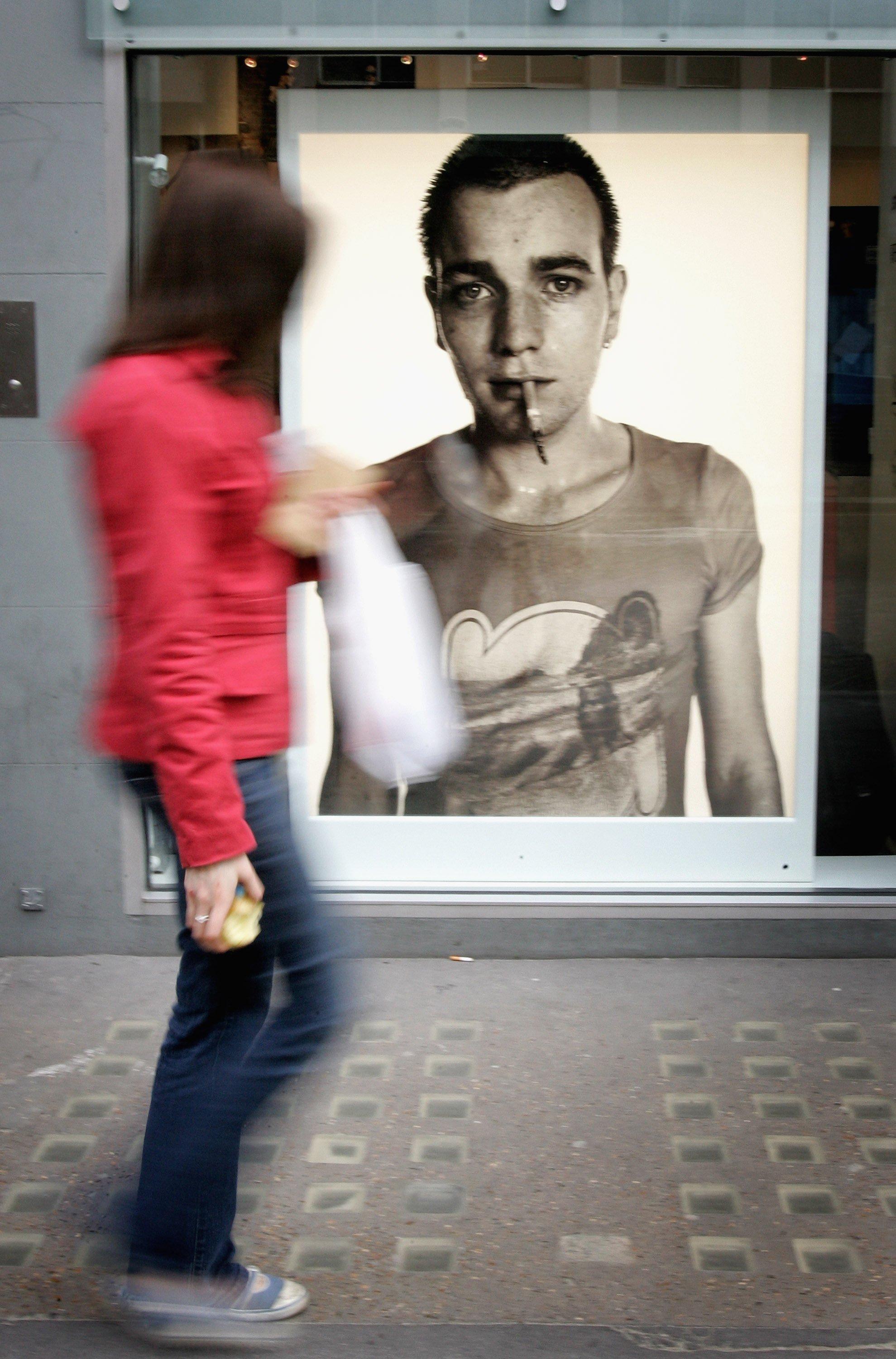
Photo of Ewan McGregor in Trainspotting
news
How The 'Trainspotting' Soundtrack Turned A Dispatch From The Fringes Into A Cult Classic
Twenty-five years after 'Trainspotting' first thrilled and scandalized moviegoers, the film's soundtrack remains an iconic collision of Britpop, rock and dance music
From its opening shot, Trainspotting is a movie in motion. As sneakers hit the sidewalk of Princes Street in Edinburgh, Scotland, we hear the raucous drumbeat of Iggy Pop's 1977 barnstormer "Lust For Life." Renton—played by Ewan McGregor—and Spud—by Ewen Bremner—sprint away from two security guards, their shoplifting spoils flying out of their pockets.
"Choose life," Renton's narration begins, introducing an instantly classic monologue about the emptiness of middle-class aspirations. The action then zips to a soccer match that introduces Renton's ragtag mates: Spud, Sick Boy (Jonny Lee Miller), Begbie (Robert Carlyle) and Tommy (Kevin McKidd). The scene is all propulsion and attitude, with Iggy Pop dropping the match on the trail of fuel. In just 60 exhilarating seconds, Trainspotting tells us precisely what it's going to be.
<style>.embed-container { position: relative; padding-bottom: 56.25%; height: 0; overflow: hidden; max-width: 100%; } .embed-container iframe, .embed-container object, .embed-container embed { position: absolute; top: 0; left: 0; width: 100%; height: 100%; }</style><div class='embed-container'><iframe src='https://www.youtube.com/embed/uOz5Qm2EHQE' frameborder='0' allowfullscreen></iframe></div>
Trainspotting burst into U.K. cinemas in February 1996, followed immediately by a debate on whether its fizzing depiction of junkie life glorified drug use. Audiences staggered out, scandalized and delighted in equal measure by "The Worst Toilet In Scotland," Spud's soiled sheets and a ceiling-crawling baby. By the time it opened in the US in May, the movie was already a critical and box office hit at home. Its credentials were undeniable, including a compelling young cast led by newcomer McGregor, a visually daring director in Danny Boyle and a script adapted from Irvine Welsh's cult book of the same name.
In a year dominated by slick Hollywood blockbusters like Independence Day, Twister and Mission: Impossible, Trainspotting was the scrappy, no-kids-allowed outsider that could. One of the movie's most significant talking points, and a key reason for its enduring legacy, was its use of "needle drops" in lieu of a traditional composerly film score. The soundtrack reaches back to the '70s and '80s, while also showcasing of-the-moment Britpop and dance music. The music of Trainspotting endures because it's intrinsic to the movie, with each song meant to elevate a particular scene or moment.
Read: How 1995 Became The Year Dance Music Albums Came Of Age
Welsh's 1993 novel frames Renton's misadventures as a heroin addict against the dismal backdrop of Leith, just north of Edinburgh's city center. Trainspotting was first adapted as a stage play, with Ewen Bremner (perfectly cast as Spud in the movie) playing Renton. Before long, the movie offers rolled in. "There was loads of interest," Welsh told Vice in 2016. "Everybody seemed to want to make a film of Trainspotting."
Most directors wanted to ground the adaptation in social realism, but Welsh knew Trainspotting needed a wilder take. In 1994, a promising young director called Danny Boyle had made his feature debut with the pitch-black comedy Shallow Grave, starring Ewan McGregor. Impressed by the movie's visual flair, Welsh gave Boyle the keys to Trainspotting.
<style>.embed-container { position: relative; padding-bottom: 56.25%; height: 0; overflow: hidden; max-width: 100%; } .embed-container iframe, .embed-container object, .embed-container embed { position: absolute; top: 0; left: 0; width: 100%; height: 100%; }</style><div class='embed-container'><iframe src='https://www.youtube.com/embed/xKrfUAho5as' frameborder='0' allowfullscreen></iframe></div>
The making of the movie was a thrill for all involved. Fresh from writing Shallow Grave, screenwriter John Hodge relished the opportunity to adapt Welsh's book for the screen. (Hodge was nominated for Best Adapted Screenplay at the 1997 Academy Awards - the movie's only Oscar nod.) Before filming, Boyle sent his actors to spend time with Calton Athletic, a real-life recovery group for addicts. The shoot began in June 1995 and lasted 35 days (a step up from the 30 allocated for Shallow Grave), with Glasgow mostly standing in for Edinburgh.
Alongside cinematographer Brian Tufano, Boyle brought a bold, kinetic style to every shot. "We'd set out to make as pleasurable a film as possible about subject matter that is almost unwatchable," Boyle told HiBrow in 2018.
While Shallow Grave gave an early glimpse of Boyle's tastes, including his fondness for electronic duo Leftfield, the music in Trainspotting demanded a bigger role. Welsh's book is peppered with references to The Smiths, Iggy Pop, Lou Reed and David Bowie, so the call went out to a select list of musical icons. Bowie was a no, but others who'd loved the novel happily offered up their music to the project.
Welsh and Boyle were both clued-in to acid house and rave culture (represented on the soundtrack by the likes of Underworld, Leftfield and John Digweed and Nick Muir's Bedrock project), but it was the director's idea to bring in the likes of Blur and Pulp. That decision was a "masterstroke", Welsh told Vice, because "Britpop was kind of the last strand of British youth culture, and it helped position the film as being the last movie of British youth culture."
Several of the best scenes in Trainspotting are soundtracked by songs made before 1990. Following "Lust For Life", the sleazy strut of Iggy Pop's 1977 track "Nightclubbing" lurks behind a sequence of Renton's relapse into heroin. (Both songs were co-written by David Bowie, giving him an honorary spot on the soundtrack.) New Order's 1981 song "Temptation" is a motif for Renton's taboo relationship with high schooler Diane (Kelly Macdonald in her first film role), while Heaven 17's 1983 pop hit "Temptation" plays at the club where they first meet.
<style>.embed-container { position: relative; padding-bottom: 56.25%; height: 0; overflow: hidden; max-width: 100%; } .embed-container iframe, .embed-container object, .embed-container embed { position: absolute; top: 0; left: 0; width: 100%; height: 100%; }</style><div class='embed-container'><iframe src='https://www.youtube.com/embed/4MAzQcEdK2k' frameborder='0' allowfullscreen></iframe></div>
Lou Reed's "Perfect Day" lands the hardest punch. In a dazzling sequence, Renton visits his dealer Mother Superior (Peter Mullan) for a hit of heroin. As Renton's body sinks almost romantically into the floor, we hear Lou Reed softly singing about a perfect day drinking sangria in the park. The romance ends there. Knowing an overdose on sight, Mother Superior drags his sort-of friend to the street, then heaves him into a taxi, tucking the fare in his shirt pocket. (In a brilliant small detail, we see an ambulance rush past, headed for someone else.)
"Perfect Day" keeps on at its languid pace as Renton is ejected at the hospital, hauled onto a stretcher and revived by a nurse with a needle to his arm. "You're going to reap just what you sow," Lou Reed sings as Renton gasps wildly for air.
<style>.embed-container { position: relative; padding-bottom: 56.25%; height: 0; overflow: hidden; max-width: 100%; } .embed-container iframe, .embed-container object, .embed-container embed { position: absolute; top: 0; left: 0; width: 100%; height: 100%; }</style><div class='embed-container'><iframe src='https://www.youtube.com/embed/_IDJpB9de3E' frameborder='0' allowfullscreen></iframe></div>
Boyle pushed for Britpop on the soundtrack, but he didn't want obvious hits. Britpop, a genre coined in the '90s to describe a new wave of British bands influenced by everything from the Beatles to the late '80s "Madchester" scene, was at its peak during the Trainspotting shoot in the summer of 1995. Pulp had just released the Britpop anthem "Common People," Elastica and Supergrass were flying high from their debut albums, and genre superstars Oasis and Blur were locked in a media-fueled battle for chart supremacy.
In the heat of all that hype, Boyle reached back to 1991 and took "Sing" from Blur's debut album, Leisure. The song's stirring piano melody picks up after the "Nightclubbing" sequence, as Renton and his fellow addicts hit a harrowing rock bottom. Later, when Begbie busts in on Renton's new life in London, Pulp's "Mile End" underlines the mood of big city ennui. Along with contributions from Elastica and Blur frontman Damon Albarn, Trainspotting draws on just enough Britpop to keep its cool.
If Trainspotting has a signature song, it's Underworld's "Born Slippy .NUXX". The duo of Rick Smith and Karl Hyde already had three albums behind them when Boyle reached out to use their 1995 B-side in his movie's climax. The duo was wary—as Smith later put it to Noisey, their music was often sought out to accompany "a scene of mayhem"—but Boyle convinced them with a snippet of the film. Underworld also contributed the propulsive "Dark & Long" to the indelible scene of Renton detoxing inside his childhood bedroom. After Trainspotting, "Born Slippy .NUXX" became the defining song of Underworld's career and a constant euphoric peak in their live sets.
<style>.embed-container { position: relative; padding-bottom: 56.25%; height: 0; overflow: hidden; max-width: 100%; } .embed-container iframe, .embed-container object, .embed-container embed { position: absolute; top: 0; left: 0; width: 100%; height: 100%; }</style><div class='embed-container'><iframe src='https://www.youtube.com/embed/W9ZNKGrpnKM' frameborder='0' allowfullscreen></iframe></div>
Just as Trainspotting caught the Britpop zeitgeist, it also immortalized a high point for dance music. A rush of trailblazing dance albums came out in 1995, including Leftfield's Leftism, The Chemical Brothers' Exit Planet Dust and Goldie's Timeless. In a time of rave culture colliding with chart hits, the movie finds room for both the dark electronics of Leftfield's "A Final Hit" and the goofy Eurodance of Ice MC's "Think About The Way".
In one scene, Renton sits grinning between the speakers at a London nightclub that's going off to Bedrock and KYO's 1993 classic "For What You Dream Of." "Diane was right," he narrates, recalling a conversation from before he left Edinburgh. "The world is changing, music is changing, drugs are changing, even men and women are changing." For the briefest moment, we see the thrill of '90s dance music as it really was.
<style>.embed-container { position: relative; padding-bottom: 56.25%; height: 0; overflow: hidden; max-width: 100%; } .embed-container iframe, .embed-container object, .embed-container embed { position: absolute; top: 0; left: 0; width: 100%; height: 100%; }</style><div class='embed-container'><iframe src='https://www.youtube.com/embed/6hvfVO9qadY' frameborder='0' allowfullscreen></iframe></div>
The Trainspotting soundtrack album hit shelves in July of 1996. The cover played on the movie's iconic poster design, framing the characters in vivid orange. The soundtrack sold so well that a second volume followed in 1997, featuring other songs from the movie and a few that missed the cut. (The same year, the hugely popular Romeo + Juliet soundtrack also inspired a "Vol. 2.")
Boyle continued to use music as a key character in his movies, following up Trainspotting with the madcap Americana of A Life Less Ordinary and the pop-meets-electronica of The Beach. After 20 years, Boyle got the gang back together for 2017's T2 Trainspotting. In contrast to the original's wall-to-wall needle drops, the sequel weaved a score by Underworld's Rick Smith around songs by High Contrast, Wolf Alice and Young Fathers.
Many impressive, star-studded soundtracks followed in the wake of Trainspotting. What makes this one rare, though, is how deeply its unholy union of rock, Britpop and dance music belongs to the movie. Remove any needle drop from a scene in Trainspotting, however fleeting, and it'd lose something vital—that's how you know it's built to last.
How 1995 Became A Blockbuster Year For Movie Soundtracks
.jpg)
Photo: Yoko Ono
list
5 Reasons John Lennon's 'Mind Games' Is Worth Another Shot
John Lennon's 1973 solo album 'Mind Games' never quite got its flowers, aside from its hit title track. A spectacular 2024 remix and expansion is bound to amend its so-so reputation.
As the train of Beatles remixes and expansions — solo or otherwise — chugs along, a fair question might come to mind: why John Lennon's Mind Games, and why now?
When you consider some agreed-upon classics — George Harrison's Living in the Material World, Ringo Starr's Ringo — it might seem like it skipped the line. Historically, fans and critics have rarely made much of Mind Games, mostly viewing it as an album-length shell for its totemic title track.
The 2020 best-of Lennon compilation Gimme Some Truth: The Ultimate Mixes featured "Mind Games," "Out the Blue," and "I Know (I Know)," which is about right — even in fanatical Lennon circles, few other Mind Games tracks get much shine. It's hard to imagine anyone reaching for it instead of Plastic Ono Band, or Imagine, or even the controversial, semi-outrageous Some Time in New York City.
Granted, these largely aren't A-tier Lennon songs — but still, the album's tepid reputation has little to do with the material. The original Mind Games mix is, to put it charitably, muddy — partly due to Lennon's insecurity about his voice, partly just due to that era of recordmaking.
The fourth-best Picasso is obviously still worth viewing. But not with an inch of grime on your glasses.
The Standard Deluxe Edition. Photo courtesy of Universal Music Group
That's all changed with Mind Games: The Ultimate Collection — a fairly gobsmacking makeover of the original album, out July 12. Turns out giving it this treatment was an excellent, long-overdue idea — and producer Sean Ono Lennon, remixers Rob Stevens, Sam Gannon and Paul Hicks were the best men for the job. Outtakes and deconstructed "Elemental" and "Elements" mixes round out the boxed set.
It's not that Mind Games: The Ultimate Collection reveals some sort of masterpiece. The album's still uneven; it was bashed out at New York's Record Plant in a week, and it shows. But that's been revealed to not be its downfall, but its intrinsic charm. As you sift through the expanded collection, consider these reasons you should give Mind Games another shot.
The Songs Are Better Than You Remember
Will deep cuts like "Intuition" or "Meat City" necessarily make your summer playlist? Your mileage may vary. However, a solid handful of songs you may have written off due to murky sonics are excellent Lennon.
With a proper mix, "Aisumasen (I'm Sorry)" absolutely soars — it's Lennon's slow-burning, Smokey Robinson-style mea culpa to Yoko Ono. "Bring On the Lucie (Freda Peeple)" has a rickety, communal "Give Peace a Chance" energy — and in some ways, it's a stronger song than that pacifist classic.
And on side 2, the mellow, ruminative "I Know (I Know)" and "You Are Here" sparkle — especially the almost Mazzy Star-like latter tune, with pedal steel guitarist "Sneaky" Pete Kleinow (of Flying Burrito Brothers fame) providing abundant atmosphere.
And, of course, the agreed-upon cuts are even better: "Mind Games" sounds more celestial than ever. And the gorgeous, cathartic "Out the Blue" — led by David Spinozza's classical-style playing, with his old pal Paul McCartney rubbing off on the melody — could and should lead any best-of list.
The Performances Are Killer
Part of the fun of Mind Games: The Ultimate Collection is realizing how great its performances are. They're not simply studio wrapping paper; they capture 1970s New York's finest session cats at full tilt.
Those were: Kleinow, Spinozza, keyboardist Ken Ascher, bassist Gordon Edwards, drummer Jim Keltner (sometimes along with Rick Marotta), saxophonist Michael Brecker, and backing vocalists Something Different.
All are blue-chip; the hand-in-glove rhythm section of Edwards and Keltner is especially captivating. (Just listen to Edwards' spectacular use of silence, as he funkily weaves through that title track.)
The hardcover book included in Mind Games: The Ultimate Collection is replete with the musicians' fly-on-the-wall stories from that week at the Record Plant.
"You can hear how much we're all enjoying playing together in those mixes," Keltner says in the book, praising Spinozza and Gordon. "If you're hearing John Lennon's voice in your headphones and the great Kenny Ascher playing John's chords on the keys, there's just no question of where you're going and how you're going to get there."
It Captures A Fascinating Moment In Time
"Mind Games to me was like an interim record between being a manic political lunatic to back to being a musician again," Lennon stated, according to the book. "It's a political album or an introspective album. Someone told me it was like Imagine with balls, which I liked a lot."
This creative transition reflects the upheaval in Lennon's life at the time. He no longer had Phil Spector to produce; Mind Games was his first self-production. He was struggling to stay in the country, while Nixon wanted him and his message firmly out.
Plus, Lennon recorded it a few months before his 18-month separation from Ono began — the mythologized "Lost Weekend" that was actually a creatively flourishing time. All of this gives the exhaustive Mind Games: The Ultimate Collection historical weight, on top of listening pleasure.
"[It's important to] get as complete a revealing of it as possible," Stevens, who handled the Raw Studio Mixes, tells GRAMMY.com. "Because nobody's going to be able to do it in 30 years."
John Lennon and Yoko Ono in Central Park, 1973. Photo: Bob Gruen
Moments Of Inspired Weirdness Abound
Four seconds of silence titled the "Nutopian International Anthem." A messy slab of blues rock with refrains of "Fingerlickin', chicken-pickin'" and "Chickin-suckin', mother-truckin'." The country-fried "Tight A$," basically one long double entendre.
To put it simply, you can't find such heavy concentrates of Lennonesque nuttiness on more commercial works like Imagine. Sometimes the outliers get under your skin just the same.
It's Never Sounded Better
"It's a little harsh, a little compressed," Stevens says of the original 1973 mix. "The sound's a little bit off-putting, so maybe you dismiss listening to it, in a different head. Which is why the record might not have gotten its due back then."
As such, in 2024 it's revelatory to hear Edwards' basslines so plump, Keltner's kick so defined, Ascher's lines so crystalline. When Spinozza rips into that "Aisumasen" solo, it absolutely penetrates. And, as always with these Lennon remixes, the man's voice is prioritized, and placed front and center. It doesn't dispose of the effects Lennon insecurely desired; it clarifies them.
"I get so enthusiastic," Ascher says about listening to Mind Games: The Ultimate Collection. "I say, 'Well, that could have been a hit. This could have been a hit. No, this one could have been a hit, this one." Yes is the answer.

Photo: Archive Photos/Getty Images
list
'A Hard Day's Night' Turns 60: 6 Things You Can Thank The Beatles Film & Soundtrack For
This week in 1964, the Beatles changed the world with their iconic debut film, and its fresh, exuberant soundtrack. If you like music videos, folk-rock and the song "Layla," thank 'A Hard Day's Night.'
Throughout his ongoing Got Back tour, Paul McCartney has reliably opened with "Can't Buy Me Love."
It's not the Beatles' deepest song, nor their most beloved hit — though a hit it was. But its zippy, rollicking exuberance still shines brightly; like the rest of the oldies on his setlist, the 82-year-old launches into it in its original key. For two minutes and change, we're plunged back into 1964 — and all the humor, melody, friendship and fun the Beatles bestowed with A Hard Day's Night.
This week in 1964 — at the zenith of Beatlemania, after their seismic appearance on "The Ed Sullivan Show" — the planet received Richard Lester's silly, surreal and innovative film of that name. Days after, its classic soundtrack dropped — a volley of uber-catchy bangers and philosophical ballads, and the only Beatles LP to solely feature Lennon-McCartney songs.
As with almost everything Beatles, the impact of the film and album have been etched in stone. But considering the breadth of pop culture history in its wake, Fab disciples can always use a reminder. Here are six things that wouldn't be the same without A Hard Day's Night.
All Music Videos, Forever
Right from that starting gun of an opening chord, A Hard Day's Night's camerawork alone — black and white, inspired by French New Wave and British kitchen sink dramas — pioneers everything from British spy thrillers to "The Monkees."
Across the film's 87 minutes, you're viscerally dragged into the action; you tumble through the cityscapes right along with John, Paul, George, and Ringo. Not to mention the entire music video revolution; techniques we think of as stock were brand-new here.
According to Roger Ebert: "Today when we watch TV and see quick cutting, hand-held cameras, interviews conducted on the run with moving targets, quickly intercut snatches of dialogue, music under documentary action and all the other trademarks of the modern style, we are looking at the children of A Hard Day's Night."
Emergent Folk-Rock
George Harrison's 12-string Rickenbacker didn't just lend itself to a jangly undercurrent on the A Hard Day's Night songs; the shots of Harrison playing it galvanized Roger McGuinn to pick up the futuristic instrument — and via the Byrds, give the folk canon a welcome jolt of electricity.
Entire reams of alternative rock, post-punk, power pop, indie rock, and more would follow — and if any of those mean anything to you, partly thank Lester for casting a spotlight on that Rick.
The Ultimate Love Triangle Jam
From the Byrds' "Triad" to Leonard Cohen's "Famous Blue Raincoat," music history is replete with odes to love triangles.
But none are as desperate, as mannish, as garment-rending, as Derek and the Dominoes' "Layla," where Eric Clapton lays bare his affections for his friend Harrison's wife, Pattie Boyd. Where did Harrison meet her? Why, on the set of A Hard Day's Night, where she was cast as a schoolgirl.
Debates, Debates, Debates
Say, what is that famous, clamorous opening chord of A Hard Day's Night's title track? Turns out YouTube's still trying to suss that one out.
"It is F with a G on top, but you'll have to ask Paul about the bass note to get the proper story," Harrison told an online chat in 2001 — the last year of his life.
A Certain Strain Of Loopy Humor
No wonder Harrison got in with Monty Python later in life: the effortlessly witty lads were born to play these roles — mostly a tumble of non sequiturs, one-liners and daffy retorts. (They were all brought up on the Goons, after all.) When A Hard Day's Night codified their Liverpudlian slant on everything, everyone from the Pythons to Tim and Eric received their blueprint.
The Legitimacy Of The Rock Flick
What did rock 'n' roll contribute to the film canon before the Beatles? A stream of lightweight Elvis flicks? Granted, the Beatles would churn out a few headscratchers in its wake — Magical Mystery Tour, anyone? — but A Hard Day's Night remains a game-changer for guitar boys on screen.
The best part? The Beatles would go on to change the game again, and again, and again, in so many ways. Don't say they didn't warn you — as you revisit the iconic A Hard Day's Night.
Explore The World Of The Beatles
.webp)
5 Reasons John Lennon's 'Mind Games' Is Worth Another Shot

'A Hard Day's Night' Turns 60: 6 Things You Can Thank The Beatles Film & Soundtrack For

6 Things We Learned From Disney+'s 'The Beach Boys' Documentary

5 Lesser Known Facts About The Beatles' 'Let It Be' Era: Watch The Restored 1970 Film

Catching Up With Sean Ono Lennon: His New Album 'Asterisms,' 'War Is Over!' Short & Shouting Out Yoko At The Oscars
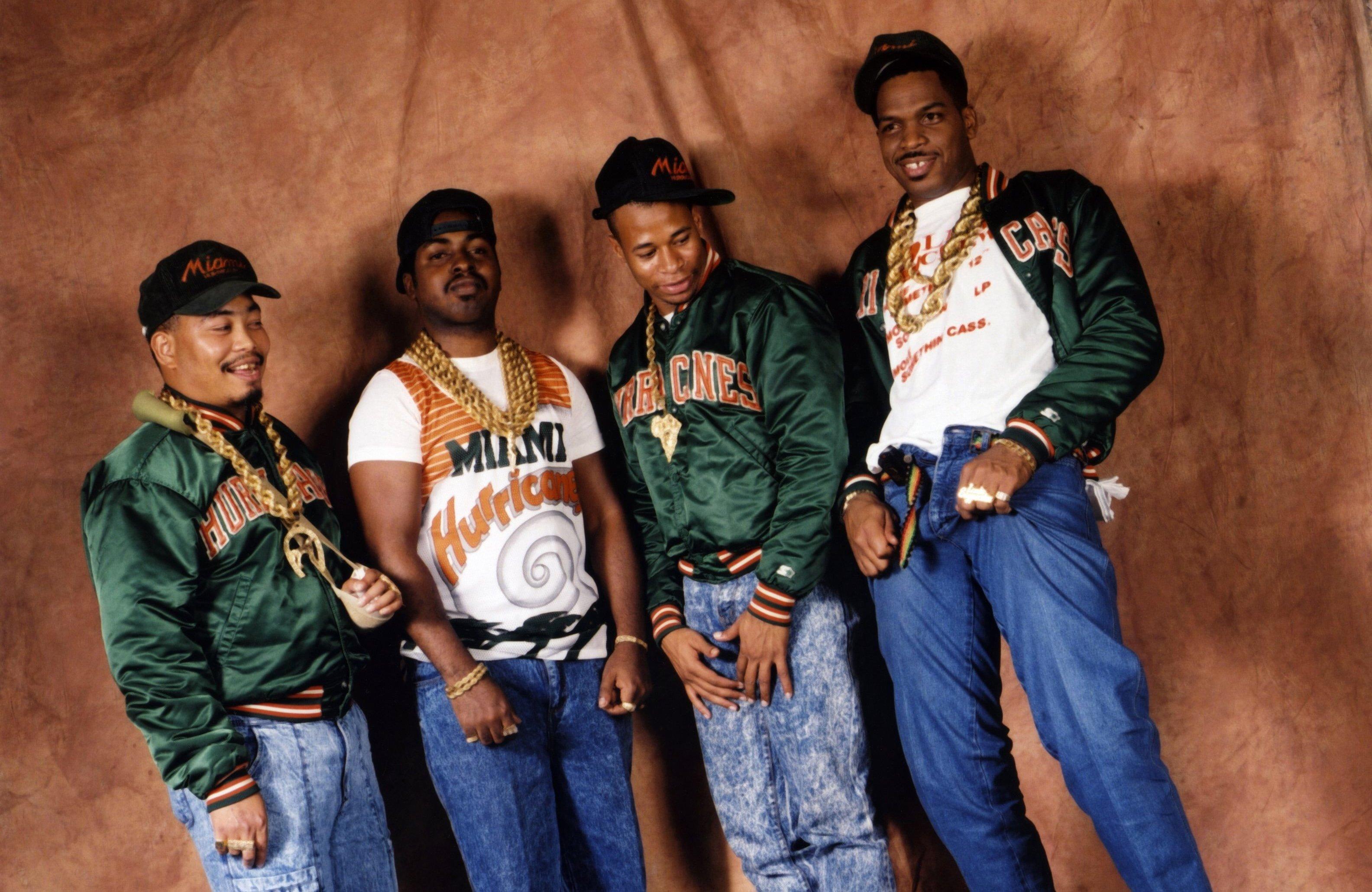
Photo: Michael Ochs Archives/Getty Images
feature
On This Day In Music: 2 Live Crew's 'As Nasty As They Wanna Be' Becomes First Album Declared Legally Obscene, Anticipates First Amendment Cases
Known for their raunchy take on hip-hop, 2 Live Crew made history when 'As Nasty As They Wanna Be' was declared legally obscene. Thirty-four years later, here's how they fought back and turned their battle into a landmark First Amendment case.
When 2 Live Crew released their third studio album, they never imagined it would lead to a mammoth of legal entanglements. In 1989, the Miami-based hip-hop group dropped As Nasty As They Wanna Be, a title that held true throughout the ensuing legal battle.
In an effort to put their music on the map and distinguish themselves in the rap game, amidst one of hip-hops finest eras, the album featured sexually explicit themes and graphic content, leading to extreme popularity within pop culture. However, this widespread attention wasn’t all in a good light.
In Broward County, Florida, Sheriff Nick Navarro took a stand against the group, endeavoring to prevent local record store owners from selling the provocative album. In defiance of this censorship, 2 Live Crew filed a lawsuit in federal court, seeking legal recourse to halt the sheriff’s crackdown, prevent restrictions on album sales and legally defend their work as non-obscene.
Through the court's ruling, they deemed the work legally obscene and prohibited retailers from selling the album in Florida’s Broward, Dade, and Palm Beach counties.
Following the ruling, Florida record store owner Charles Freeman was arrested for selling As Nasty As They Wanna Be and three 2 Live Crew members were also arrested for performing their explicit music live at a nightclub in Hollywood, Florida.
Challenging the initial ruling with tenacity, the group’s record label, Luke Records, founded by 2 Live Crew member Luther Campbell, brought the case in front of the Eleventh Circuit Court of Appeals.
In this legal battle, the Eleventh Circuit Court applied the Miller Test, a benchmark for obscenity set by the United States Supreme Court’s test in the 1973 Miller v. California case. To meet the standards of the test, the work being challenged must appeal to a prurient, or shameful interest in sex, depict sexual materials in a patently offensive way, and lack serious literary, artistic, political, or scientific value. Luke Records called four experts in their fields to the stand, while Navarro failed to provide concrete evidence that the album met the standards outlined by the Miller Test.
In the Court of Appeals, it was found that the album did not meet the standards of obscenity that were set forth in the Miller Test. Since As Nasty As They Wanna Be was a creative work of music, the court ruled that the album had artistic value and thus did not meet all the standards to be deemed as obscene.
"I’ve been listening to the album by 2 Live Crew. It’s not the best album that’s ever been made, but when I heard they banned it, I went out and bought it," said David Bowie during his 1990 tour in Philadelphia, stopping in the middle of his performance to defend the group. "Freedom of thought, freedom of speech — it’s one of the most important things we have."
Last week, 2 Live Crew member Brother Marquis passed away, prompting Campbell to take to Twitter and honor his friend and fellow member, stating, "We took on so many fights for the culture, made great music together, something I will never forget."
To this day, the case against 2 Live Crew serves as a legal standard for First Amendment Rights, upholding the boundaries between censorship and freedom of speech within music.
"They really set a legal precedent for hip-hop artists today to be able to create in the way that they choose to," says Kiana Fitzgerald in her book "Ode to Hip-Hop." In the book, she also cites contemporary examples of hip-hop artists who openly speak about sex in their discography, like Megan Thee Stallion, Cardi B, Lil Wayne, and others.
Through 2 Live Crew’s legal fight, they paved the way as trailblazers for hip-hop artists to be As Nasty As They Wanna Be — without facing speech-smothering legal repercussions.
Explore More History-Making Moments In Music
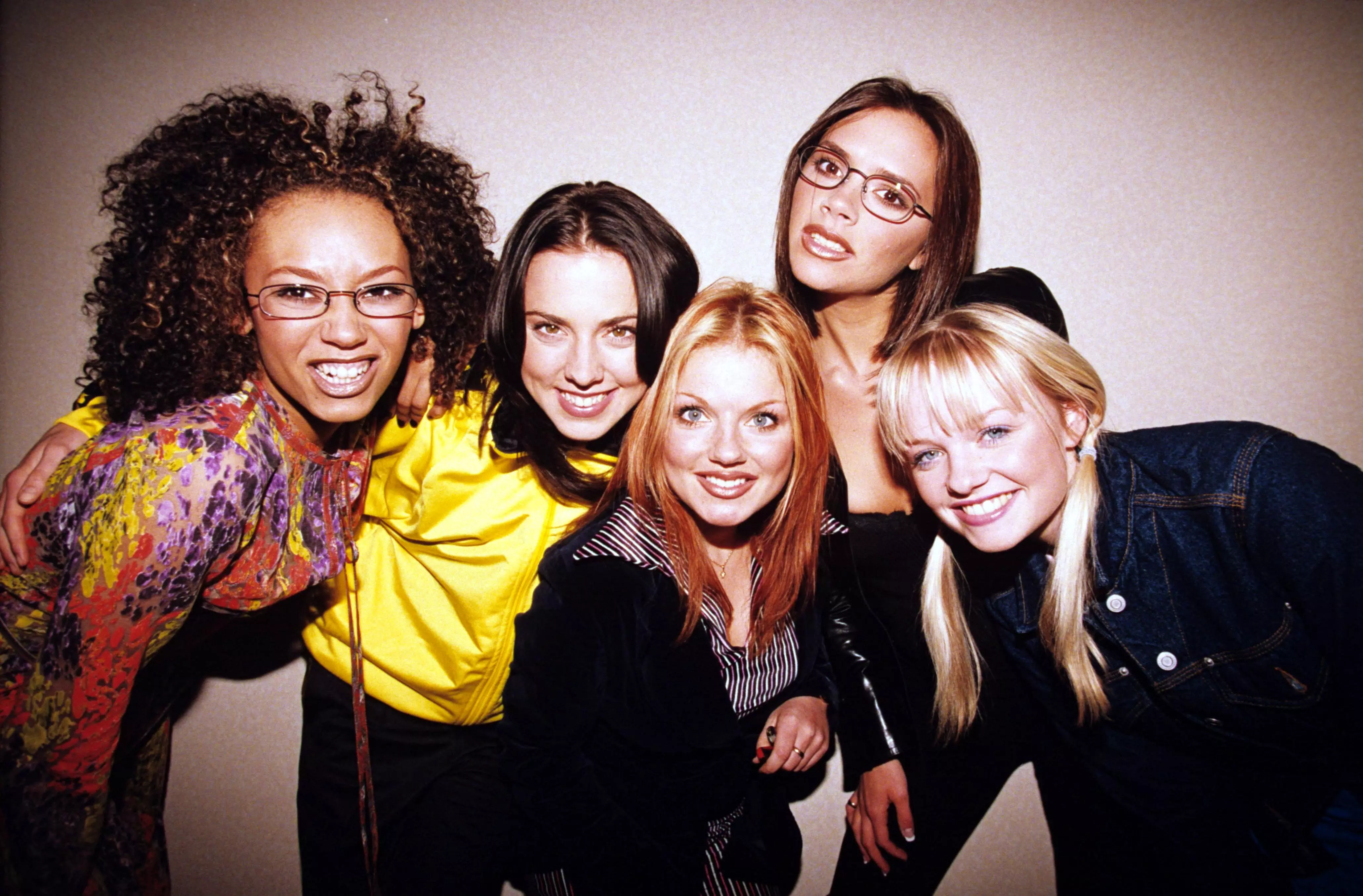
On This Day In Music: Spice Girls Release "Wannabe," Their Iconic Debut Single
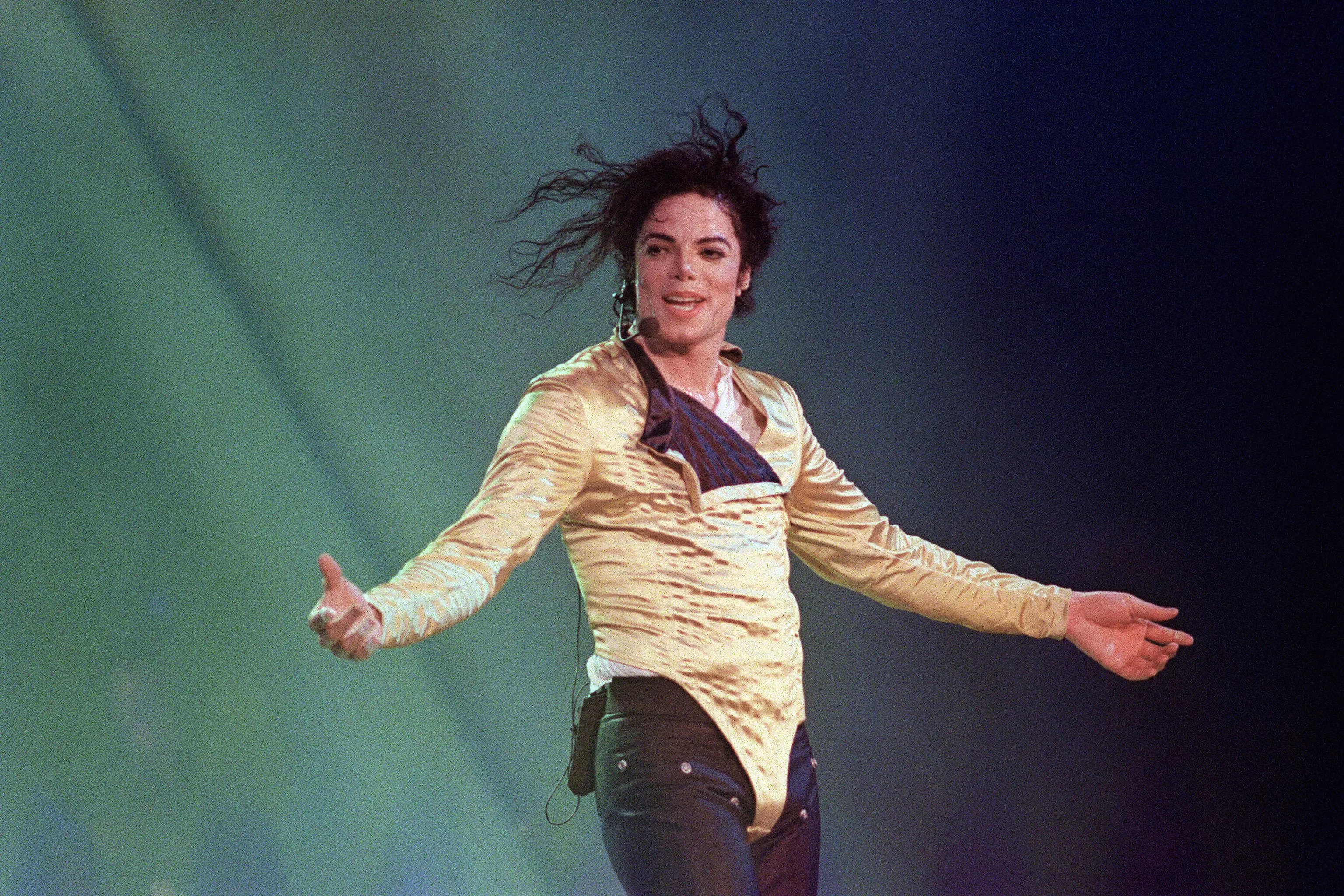
On This Day In Music: Michael Jackson Passes Away In Los Angeles At Age 50
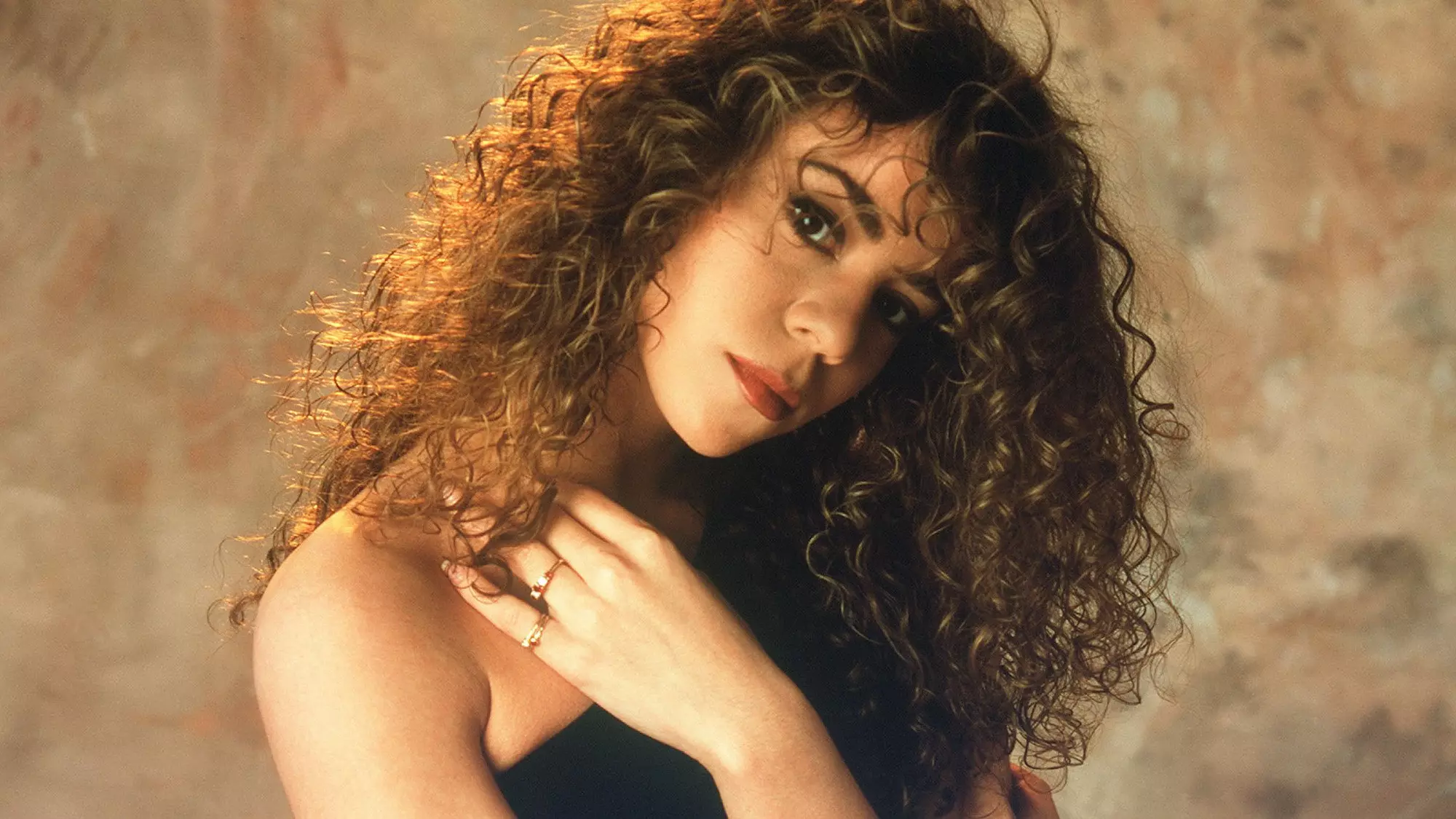
On This Day In Music: Mariah Carey Releases Her Self-Titled Debut Album
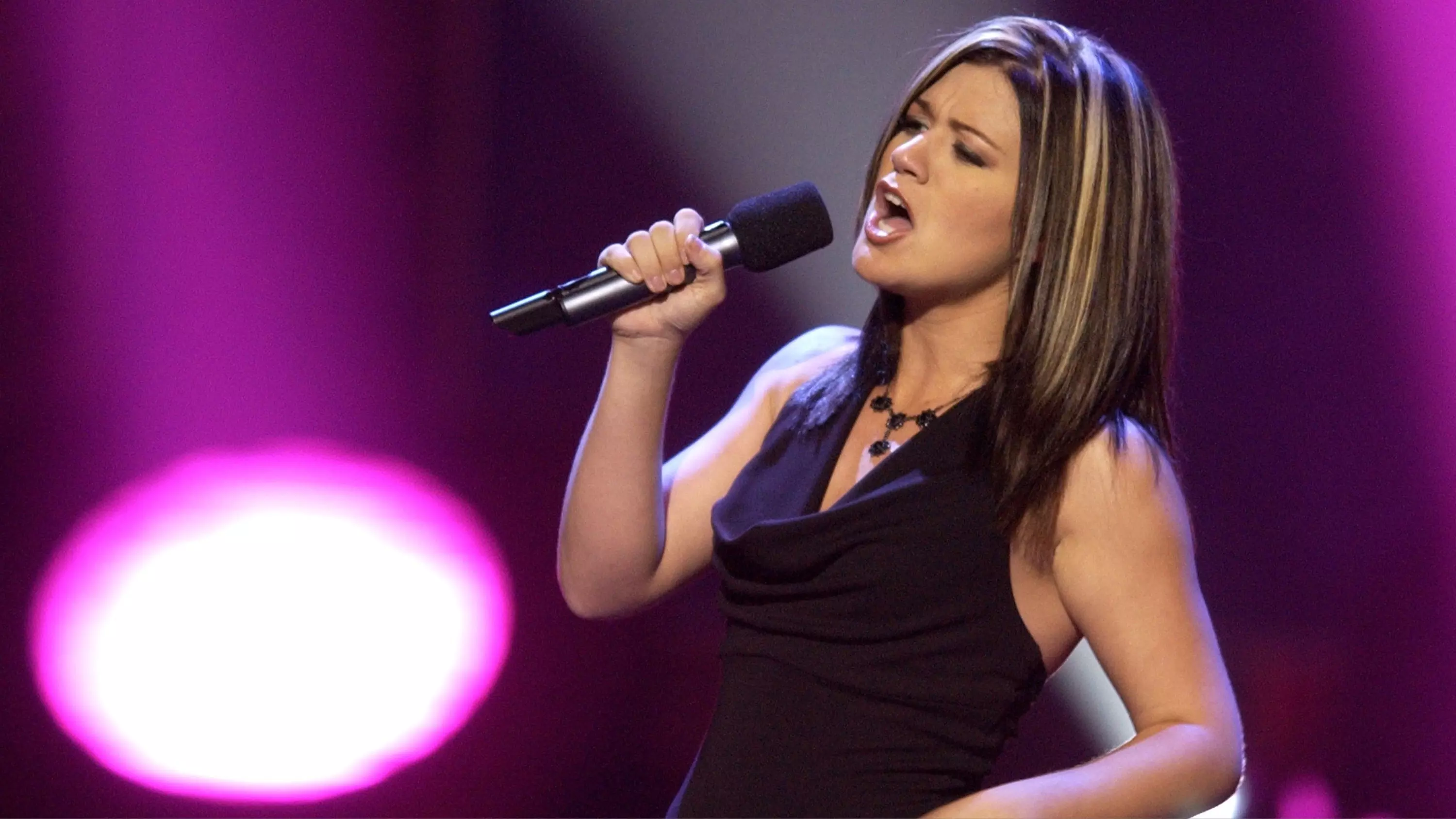
On This Day In Music: "American Idol" Premieres On Fox Network
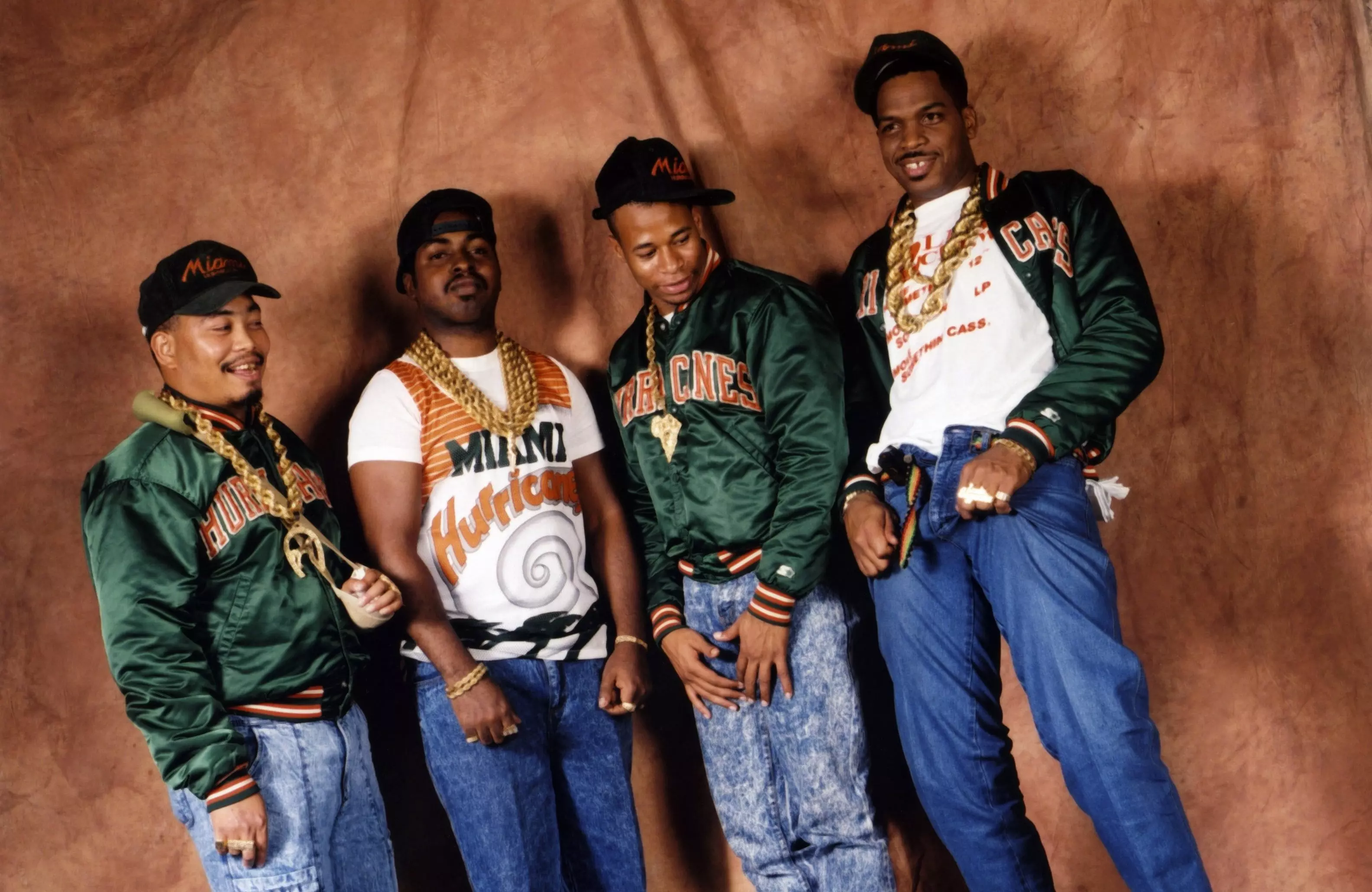
On This Day In Music: 2 Live Crew's 'As Nasty As They Wanna Be' Becomes First Album Declared Legally Obscene, Anticipates First Amendment Cases
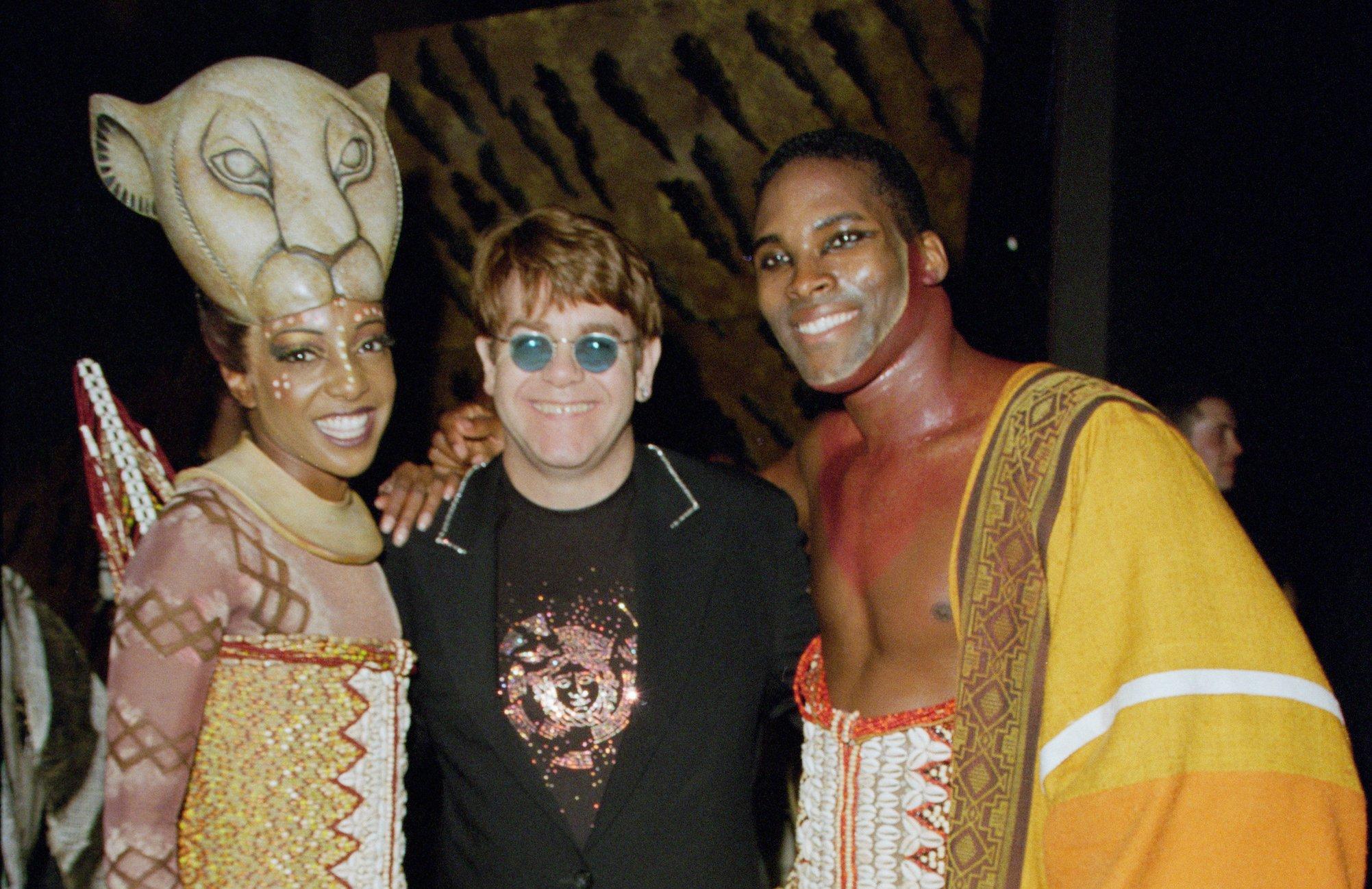
Photo: Dave Benett/Getty Images
list
9 Reasons Why 'The Lion King' Is The Defining Disney Soundtrack
Thirty years after 'The Lion King: Original Motion Picture Soundtrack' was released, revisit all the ways it became Disney's ultimate musical moment, from multiple GRAMMYs to a Broadway smash.
Following the untimely death of their regular composer Howard Ashman, who, alongside Alan Menken, had written the soundtracks for The Little Mermaid, Beauty and the Beast, and Aladdin, Walt Disney Feature Animation were forced to look elsewhere for 1994's The Lion King. As their first film ever based on an original story, and their first to consist entirely of animal characters, the Mouse House was already taking something of a gamble. And they further refused to play it safe by appointing a pop star with no prior experience of the Hollywood machine.
Luckily, the leftfield choice of British national treasure Elton John (then without his Sir title), proved to be a masterstroke. Alongside Tim Rice, the lyricist best-known for his musical theater work with Andrew Lloyd Webber, the Rocket Man delivered five instant classics. Not only did the likes of "Can You Feel The Love Tonight," "I Just Can't Wait To Be King," and "Circle of Life" perfectly help push forward the narrative, but they also helped push the film to awards glory at the Oscars and GRAMMYs, a colossal box office figure of nearly one billion dollars, and permanent residency in the pop culture landscape.
Of course, John and Rice can't take all the credit for Lion King's roaring success. Acclaimed composer Hans Zimmer also came on board to give an orchestral touch to the Shakespeare-inspired tale of an heir apparent, who after escaping his wicked uncle's clutches, returns years later to reclaim his rightful position. And professional singers Carmen Twillie, Sally Dworsky, and Kristle Edwards joined household names such as Nathan Lane, Whoopi Goldberg, and Rowan Atkinson in the recording booth, further driving the massive impact of the movie and its music.
Thirty years after it first enamored the Blockbuster generation, we take a look at how The Lion King still sits at the top of the Disney soundtrack throne.
It's Still The Biggest Selling Disney Soundtrack
Forget The Jungle Book, Beauty and the Beast, or the more recent musical phenomenon that is Frozen. When it comes to pure sales, the runaway Disney soundtrack leader is The Lion King. The Rice/John/Zimmer collaboration shifted nearly five million copies domestically in 1994 alone. And its impressive worldwide total is now triple that amount.
It's a figure that also places The Lion King in the top 10 best-selling soundtracks of all time. Indeed, it's Disney's only representative in the list, which includes Prince's Purple Rain, James Horner's Titanic, and Bee Gees' Saturday Night Fever, as well as the "I Will Always Love You"-featuring The Bodyguard at No. 1. (It still has a way to go to beat John's commercial peak, though. Goodbye Yellow Brick Road has reportedly sold an astonishing 20 million since its release in 1973.)
It Made GRAMMY History
It wasn't just at the box office where Disney firmly established its second golden age. Before the release of 1989's The Little Mermaid, the Mouse House hadn't attracted GRAMMYs attention once. By the turn of the century, however, they'd racked up a remarkable 30 nominations and 17 wins — and The Lion King played a major part in this awards dominance.
In fact, it made history by becoming the first Disney winner of both Best Male Pop Vocal Performance ("Can You Feel the Love Tonight") and Best Musical Album For Children, while "Circle of Life" picked up Best Instrumental Arrangement With Accompanying Vocals, too. The Lion King also followed in the footsteps of The Little Mermaid, Beauty and the Beast, and Aladdin by picking up the Academy Awards for both Best Original Song and Best Original Score.
It Started A Trend Of Pop Artist Composers
While Celine Dion, Peabo Bryson and Regina Belle had all previously lent their vocals to Disney's second golden age, The Lion King was the studio's first soundtrack to give a pop star composing duties. Alongside Tim Rice, the celebrated lyricist who'd worked on Aladdin, Elton John wrote all five of the album's vocal numbers. And it was a setup that appeared to give several of his peers ideas.
Randy Newman had already picked up Academy Award nods for his composing talents on 1981's Ragtime. But it wasn't until 1995's Toy Story that the singer/songwriter began the fruitful Disney animation partnership that would also take in the Monsters Inc. and Cars franchises. In 1999, Phil Collins co-wrote and performed the entirety of Tarzan's pop soundtrack. And four years later, Carly Simon decided to get in on the Mouse House action by pulling double duty on seven songs for Piglet's Big Movie.
It Introduced Hans Zimmer To Animation
The Prince of Egypt, The Road to El Dorado, Madagascar, and The Simpsons Movie are just a few of the hit animations to have benefitted from Hans Zimmer's Midas touch. But it wasn't until 12 years into his career that the German composer proved that his talents could be used just as effectively in the world of animation as live-action. And The Lion King was the catalyst.
Zimmer provided four instrumental pieces for the Disney phenomenon including "This Land," "To Die For," and "King of Pride Rock," also bagging two GRAMMYS, an Oscar and a Golden Globe for his efforts. And as he told Classic FM while promoting his work on the 2019 remake, he has a certain family member to thank. "My daughter was 6 years old. I'd never been able to take her to any premieres, and Dad likes to show off."
It Spawned Several Crossover Hits
Although Beauty and the Beast and Aladdin had both spawned big Hot 100 hits (the chart-topping "Beauty and the Beast" and Dion and Bryson's "A Whole New World," respectively), The Lion King was the first Disney soundtrack to produce two. "Can You Feel The Love Tonight" reached No. 4 in the U.S. (and No.1 in Canada and France), while "Circle of Life" peaked at No. 18. Even "Hakuna Matata" saw some Billboard action, gracing both the Hot Adult Contemporary Tracks and Bubbling Under charts.
You're unlikely to ever see Elton John performing the latter – four of the film's cast members including Nathan Lane provided the vocals. But the two official singles have remained staples of both his live shows and countless compilations ever since. And they've crossed over to the Spotify age, too, with "Circle of Life" racking up103 million streams and "Can You Feel The Love Tonight" a whopping 322 million.
It Birthed Broadway's Biggest Hit
Hitting the New Amsterdam Theatre in October 1997, The Lion King wasn't the first Disney animation to get a Broadway stage adaptation (Beauty and the Beast had opened at the Palace Theatre three years earlier) — but it remains the biggest. In fact, thanks to a run of 8,500 shows, its $1 billion-plus gross is now the highest in the theater district's history.
The Lion King has also made it around the world, picking up numerous Tony and Olivier Awards along the way. And as you'd expect, the film soundtrack's pop numbers have been just as pivotal to the theater production's success as its immersive set design, powerhouse performances, and jaw-dropping puppetry.
Those lucky enough to see the spectacle before 2010 would also have enjoyed something of a lost classic. Sung by Mufasa's hornbill advisor Zazu, the John/Rice-penned "The Morning Report" was omitted from the 1994 film but enjoyed a 13-year run in the stage show's opening act.
It Covers A Vast Range of Styles
"The plan was that we wouldn't write the usual Broadway-style Disney score," John later wrote in his 2019 memoir, Me, about his and Rice's approach to the film. "But try and come up with pop songs that kids would like."
Indeed, while the partnership of Menken and Ashman grounded their Disney sing-alongs in the worlds of musical theater and Tin Pan Alley, the new dream team were determined to venture outside the Mouse House's comfort zone.
The Lion King OST boasts everything from carefree novelty sing-alongs ("Hakuna Matata") and emotive showstoppers ("Can You Feel The Love Tonight") to campy villain songs ("Be Prepared") and rumba rockabilly ("I Just Can't Wait To Be King"). And then there's Zimmer's instrumental pieces that typically begin with cinematic strings before building up to a Zulu choir crescendo, immediately transporting listeners to the vast landscape of Pride Rock.
It Kickstarted Elton John's Second Career
"I sat there with a line of lyrics that began, 'When I was a young warthog,'" John told Time magazine in 1995 about the inception of The Lion King soundtrack, "and I thought, 'Has it come to this?'"
The pop legend needn't have worried. The song in question, "Hakuna Matata," might not have been his most lyrically sophisticated. But the comic interlude proved that John could put an infectious melody to literally any subject. And alongside his four other contributions, it gave him the impetus to further explore the world of musical theater.
The Brit subsequently reunited with Rice for 2000's Aida, a pop-oriented adaptation of Giuseppi Verdi's same-named opera which earned a GRAMMY for Best Musical Show Album in 2001. And then in 2005, John struck Broadway gold once again with the multiple Tony Award-winning screen-to-stage transfer of ballet drama Billy Elliot. That same year, he also teamed up with regular collaboratorBernie Taupin on the score for Lestat, a musical version of Anne Rice's The Vampire Chronicles.
It Formed Part Of The 2019 Remake
Proof of just how well The Lion King soundtrack has endured came in 2019 when Jon Favreau's live-action remake borrowed all five of its vocal numbers. The performers were different, of course — see the likes of John Oliver on "I Just Can't Wait To Be King," Beyoncé and Donald Glover on "Can You Feel The Love Tonight," and Seth Rogen and Billy Eichner on "Hakuna Matata." But while Zimmer's reimaginings gave them an additional African flavor, the songs didn't stray too far from the source material.
But even with a starrier cast and a bunch of new compositions and covers, the new Lion King OST failed to strike the same chord with the cinemagoing public, selling just a fraction of its predecessor. Even Beyoncé's flagship single "Spirit" failed to peak any higher than No. 98 on the Hot 100. Sometimes, the originals truly are the best.
